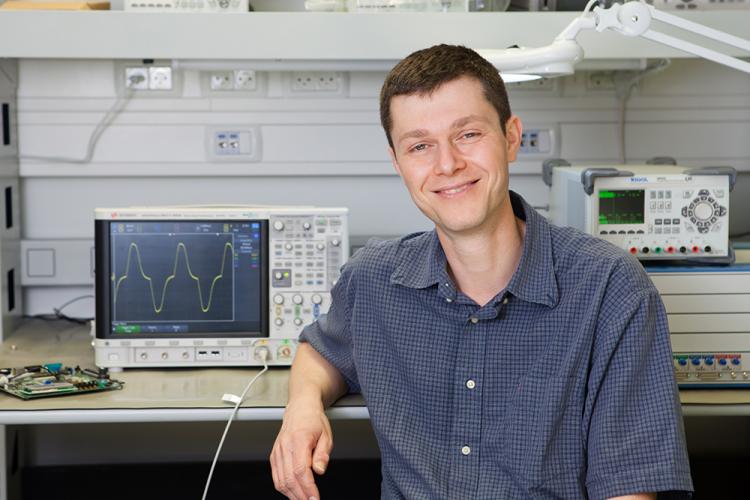Collaboration in the Faculty of Engineering

Professor Alex Fish talks about how the Faculty of Engineering has become a hub of activity in the field of chip technology.
One of the key features characterizing the Faculty of Engineering is its encouragement of close collaboration between researchers from different fields, as the royal road to breakthrough technologies. "The faculty consists of highly advanced, diverse research groups, each with its own unique research expertise. Collaboration between the groups, and the sharing of infrastructures and knowledge, has enabled exceptional achievements,” Prof. Alex Fish pointed out. “In my laboratory, for example, research focuses on improving chip design technologies. We are developing high speed and low power integrated circuits and systems, including digital logic, embedded memories, image sensors, circuits for secured hardware and other chip components. We work together with researchers from a wide range of fields in electrical engineering and computer engineering because joint efforts allow us to come up with complete solutions, from the device level to the system level. We are currently working with a number of faculty members, including Dr. Osnat Keren, Prof. Rachela Popovtzer, Dr. Adam Yemen, Prof. Yossi Shor, Dr. Doron Naveh and Prof. Shmuel Wimer, all of whom have different specializations.”
The chips, Fish described, can be integrated into a wide variety of applications. The research group is developing chips for biomedical applications, IOT applications, security applications and others. "Almost all applications today require a system-on- chip (SOC). These chips must be energy efficient, fast and secured. We design chip components, at various abstraction levels from transistors to the whole system.,” Dr. Fish, who specializes in nano-electronics and integrated circuit design, explained. “"We are looking for a holistic solution.”
Fish's research work is supported by the a range of prestigious foundations, such as the Israel Science Foundation, the German-Israel Foundation, as well as Kamin, MAGNETON and MAGNET Funds under the auspices of the Israel Innovation Authority. The lab's many activities lead naturally to additional collaboration. One major joint effort is a consortium dubbed HiPer (High Performance), which includes researchers from Bar-Ilan University, the Technion, Tel Aviv University and Ben-Gurion University, and seven Israeli companies. "The idea is to develop cutting edge technologies to significantly improve performance of state of the art SOCs. The ultimate goal of the HiPer Consortium is to give Israeli companies the leading edge over global competitors by close collaboration between groups in academia and industry. Through funding from the MAGNET program, out SOC laboratory has become a hub of knowledge and activity for the entire consortium, and employs a large number of experienced engineers. "Laboratory personnel are developing SOCs that can serve as the building blocks for all future research technologies developing within the framework of the consortium," explained Fish. “In fact, on the chip we developed in our lab, we integrate the most interesting and innovative technologies created by consortium members in academy and industry.”
These multiple efforts have made the Faculty of Engineering a key leader in chip design and applications, and a national pole of attraction. "We have access to advanced technologies, which are off limits to most of the world's universities. We have access to highly advanced EDA tools and to the most advanced infrastructures.", said Fish. The conferences organized by the Nano-Electronics track are attended by senior executives from the semiconductor industry in Israel and abroad. “By virtue of the fact that all this exists here, and that the center of activity of the consortium is here, we have become a center for innovation, attracting engineers and senior researchers from all over the world.”
Last Updated Date : 06/09/2017



